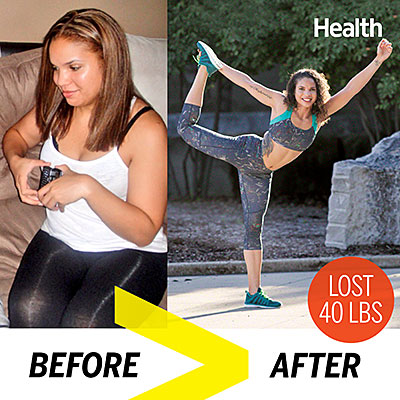9 Body-Shaming Behaviors We All Need To Stop

The human body is one of the most precious tools we have. It's an intricate, complex and reliable organism; it relentlessly serves us day and night, yet expects very little in return.
For many reasons, we're often more willing to listen to our minds than to trust in our bodies. We follow our mind with little hesitation, spending time listening to its assumptions, its lies, and its criticisms. When it comes to thinking about our bodies, however, we easily let our minds dictate our perceptions. Our default settings make it easy for us to forget that our thoughts themselves are molded by our social structures and landscapes. The mind gobbles up unrealistic ideals and projects them onto the body.
By contrast, we see our bodies as candid: our body is just what we perceive it to be (though this perception is so often shaped by social attitudes and structures). Through the mind, we see the body as something that exists only to serve our needs and refuse to see it outside of the projections our mind places onto it. The problem is, when we think we are seeing our body, we are often seeing projections instead.
Yoga, like many other activities, trains us to move out of the mind and into the body. By doing this, we rid ourselves of some of the feelings associated with the body, one of which is shame. The association between shame and the body is so deeply rooted that we have developed habits of judging the body. We do this when looking at others, but also when looking at our own bodies. Body-shaming takes on different forms, all of which have extensive effects.
Knowing what we know about the difficulties we face in becoming comfortable in our bodies, why do we continue to be so harsh? Why are we adding to the pressure?
Sometimes, it is simply because shaming has grown to be so automatic that it becomes difficult to identify the instances in which we are engaging in body-shaming. Here are nine ways in which we inadvertently body-shame. Once these become easily identifiable, we can work toward stopping, questioning, and correcting those thoughts.
1. Focusing on dieting rather than nutrition.
Our body runs like an engine, which means it needs a steady flow of fuel to reach its full potential. One of the main sources of fuel is food. Because of this reality, nutritious diets should include variety and offer an array of vitamins, fiber, fat and even carbohydrates. When we give into dieting fads like calorie counting or cutting out carbs, we are acting on our desire to look a certain way, rather than focusing on supporting our body functioning in the way we need it too.
2. Refusing to indulge.
Cooking a good meal, sharing a glass (or bottle!) of wine, having a decadent dessert — these are all ways in which we can give our body a treat. Despite knowing the pleasure these choices can bring, we have internalized the idea that ‘indulging’ too much or too often is a bad thing. How many times have you heard, "You’re so wise to refuse dessert." Or, "A moment on your lips, forever on your hips."
It's important to remember that there are healthful ways to have a treat (for instance, I like a few chocolate covered almonds after dinner). One aspect of being healthy is actually to allow ourselves these pleasures.
3. Idolizing body types as they are presented by the media.
According to The Renfrew Center Foundation for Eating Disorders, it's estimated that only 5% of North Americans have body types similar to those portrayed in the media.
While it may seem cliché, stopping body-shaming starts with the realization that bodies come in all shapes and sizes, and that few particular body types are overwhelmingly overrepresented in the media.
4. Shaming people who are ‘’too skinny.’’
Nature has created so many body types, it's unrealistic to expect us all to look the same. It's an often overlooked reality that thinner people also get shamed for being "too skinny," "body obsessed," "looking anorexic." Just like everyone else, these people are entitled to be free from the judgment of others when it comes to how their body functions and what it needs.
5. Judging the variety of body types in the exercise room.
I once had a yoga teacher who had a fuller body, and every class she would reference this to make us aware of the pressure and judgment she was subjected to within the yoga community. Thoughts like, “If you’re bigger, you can’t do yoga." Or, “You can’t be a good yoga teacher with a fuller body." These thoughts stop us from seeing that fitness comes in many shapes and size and exercise has similar benefits, no matter the body type.
6. Judging others for conforming behaviors, despite understanding the pressures they face from society.
Pressure to conform to our society’s beauty standards infiltrates us, often in subtle ways. It becomes difficult to untangle what we do to live up to these standards from that which is authentic and will genuinely make us feel beautiful. Learning to accept and love your body can be a lifelong journey, not without its own hiccups.
When we judge someone for undergoing plastic surgery, or for wearing high heels, we are engaging in a form of body-shaming. Even when the judgment is meant to be a rejection of societal ideals, it can have the opposite effect, leading to a step back rather than a step forward.
7. Judging expressions of sexuality.
Sexuality can be expressed in the way we choose to reveal our bodies, through clothing or movement. Judging people on the way they do this, or denying certain people the right to express their sexuality based on their body type is a form of body-shaming. Expressing sexuality is a natural human need to which we are all entitled. We should be able to express our sexual identities in the ways that are most genuine to us without being judged for it.
8. Not knowing our own bodies.
If we want to know how deeply ingrained body-shaming has become, we can simply turn to the ways in which we interact with our own bodies. We have learned to fear the mirror or, sometimes, to feel discomfort when naked. We refrain from spending time exploring our body and consequently limit our understanding of ourselves.
9. Defining beauty as a look rather than a state of mind
When we realize that we're more than just our bodies, we can begin to let go of some of the pressures we place on them. The body is a strong vehicle, but it is not the sole medium through which we experience life. Beauty also comes from attributes such as humor, compassion, selflessness, intelligence.
-
Diet Changing Your Focus
Have you ever decided to take a trip somewhere relatively unfamiliar?
-
Why Rapid Weight Loss Is Dangerous
We live in a very visual world and looks are increasingly important. E
-
Lose Weight Without Dieting - 5 Ways You Can Really Lose Weight Without Dieting
If you are trying to lose weight, you ha
-
Is Your Body Image Realistic
While it is true that many of us, in this day and age, have a genuine
-
Liposuction Is The Quickest Way Of Losing Unwanted Fat
Sometimes no matter how hard you try to
-
Health Benefits of Strawberries – Summer’s Super Fruit.
Alas, July is finally here. The long, hot, sunny days of July t
- DON'T MISS
- Atkins Diet Foods A Guide To Low Carb Food Products
- A Free Diet Plan for Beginners
- New Years Fitness Resolutions How To SET Them Part 2
- Why Walking Is The New Running
- Reality behind Low Carb Diets & Weight Loss
- Are You Able To Lose Fat By Means Of HCG?
- A Weight Loss Cure That is Guaranteed to Work for Everyone
- How to lose weight by dieting without exercise
- What Is Sleep Apnea? How Is The Condition Linked To Weight Gain Or Loss?
- Quick & Easy Workouts To Burn Fat




